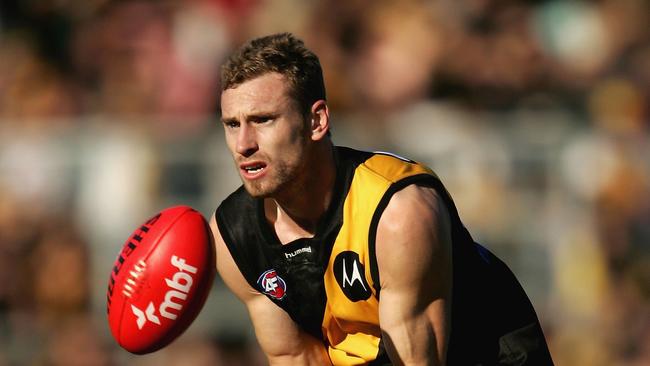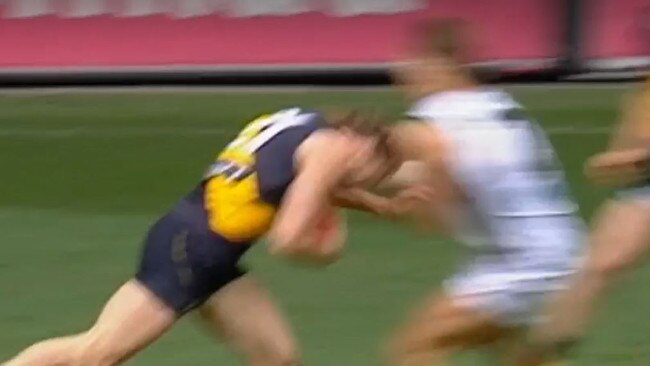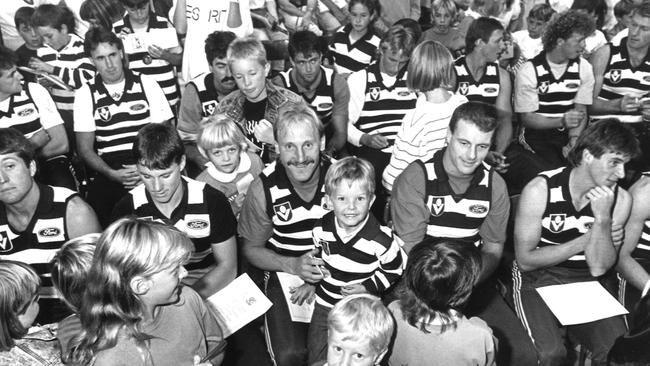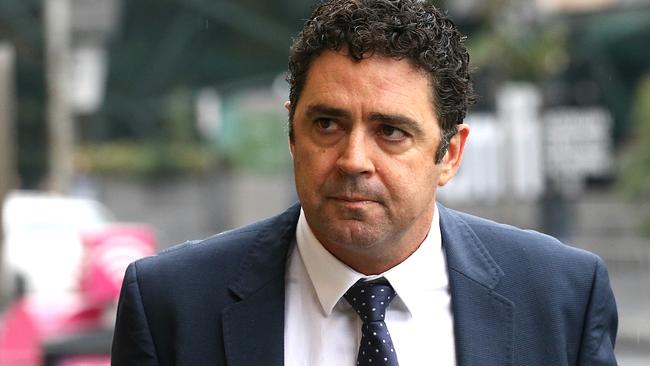Brain injured AFL footballers’ identity can now be protected in mega lawsuit
Footballers suing the AFL for claimed brain injury can now be protected from being named in a class action being taken against the billion-dollar code.

Footballers suing the AFL for claimed brain injury can now be protected from being named in the class action against the billion-dollar code.
Lawyer Michel Margalit was pleased the AFL’s lawyers provided an undertaking on Friday to protect identities of injured players in the landmark football brain injury class action.
Mr Margalit told The Weekend Australian some footballers have been fearful their employment would be impacted, as well as their relationships within the AFL, if they were to come forward to join the lawsuit, but Friday’s agreement in court will now keep their identities protected, if they so wish.

Last year Mr Margalit’s firm lodged the class action at the Supreme Court of Victoria against the AFL, with over 100 footballers now interested in pursuing the governing body for millions in compensation.
“It has been a consistent topic of concern for group members and what we’re dealing with here, brain injuries and psychological injuries, and it is a very close community, and it is such an important issue (protecting identities) that goes through personal relationships and viability of employment,” she said.
“So what we have achieved is extra protections for those group members and people who haven’t yet come forward to know that they can do so and have their identity protected.”
She added: “Many group members either continue to have social relationships or employment relationships with either the AFL or the club, and it is important they are able to continue those relationships and arrangements.”
The court also heard that Mr Margalit wants to make all 18 clubs defendants, along with the AFL, but no order was made.
“We had proposed we name all 18 clubs; the defendants have come back and said, ‘well, if you name all 18 clubs, you need to have a plaintiff for every defendant’,” Mr Margalit said. “Now, there’s different ways that we can seek to structure the proceeding, to ensure that it’s manageable. And it doesn’t take an excessive number of years to come.
“What we’re doing now, given that the AFL have indicated that position to us, we’re now going away and looking at how we can structure the proceedings so that it doesn’t become unruly and unmanageable.”

Among the plaintiffs in the landmark case is Geelong premiership player Max Rooke and AFL great Gary Ablett Sr.
Ablett Sr says he has brain damage due to football and is suing the league for negligence. He says he now has migraines, insomnia, blurred vision, significant memory loss, anxiety, fatigue and severe depression.
The 62-year-old claims he suffered neurological damage over the course of his 242-game career with Geelong from 1984-1996 and Hawthorn in 1982.
Ablett has also had a brain scan that revealed “significant, structural and functional brain damage”.
After last year’s coronial inquiry into the death of Shane Tuck – a former AFL footballer for Richmond who took his own life at 38 and was found to have chronic traumatic encephalopathy (CTE) – the coroner made a number of recommendations, including that the AFL implement independent doctors and reduce contact in training.
It is yet to do so.
Within the AFL community, there are increasing concerns about the long-term impact of head clashes, with several ex-players having been diagnosed in recent years with CTE after their deaths.
CTE, which is associated with exposure to repeated head injuries, causes memory loss, confusion, depression, suicidal thoughts and, eventually, progressive dementia.
St Kilda star Danny Frawley was diagnosed with CTE after taking his own life the day after his 56th birthday in 2019.

On Friday, Demons great and leading AFL commentator Garry Lyon says he will no longer use the term “concussions”, saying from now on he will call them out for what they are – “brain injuries”.
Lyon, who works for Fox Footy and SEN, encouraged others to follow his lead.
“We say concussion,” Lyon said. “But what is that? It means the brain is bouncing around in the skull.
“My frustration is that if a player gets a hamstring injury, we don’t call it a leg injury, we call it a hamstring. We should call it a brain injury because that’s what it is.
“I will continue to refer to it as a brain injury. I’m more than happy to shine a light and keep it at the forefront of the powers that be.”





To join the conversation, please log in. Don't have an account? Register
Join the conversation, you are commenting as Logout